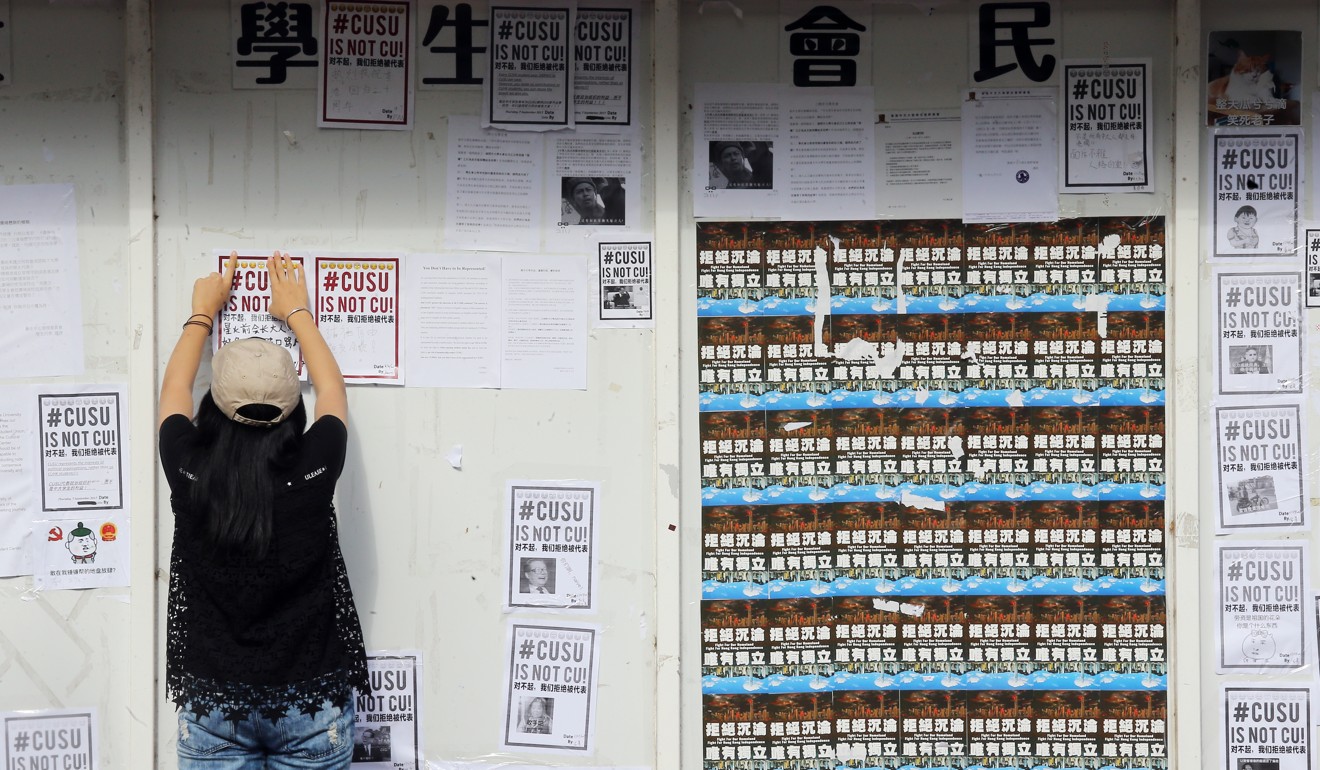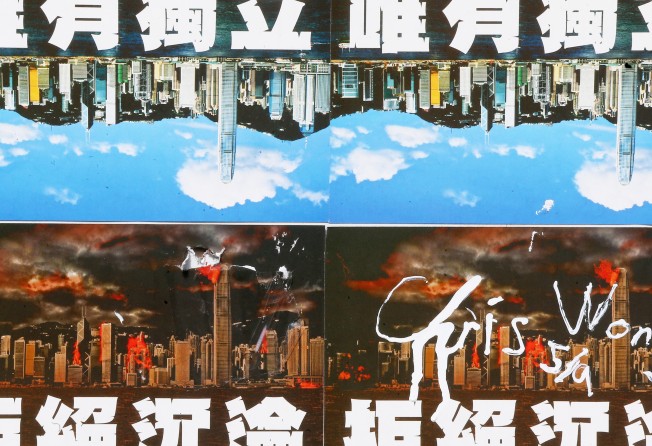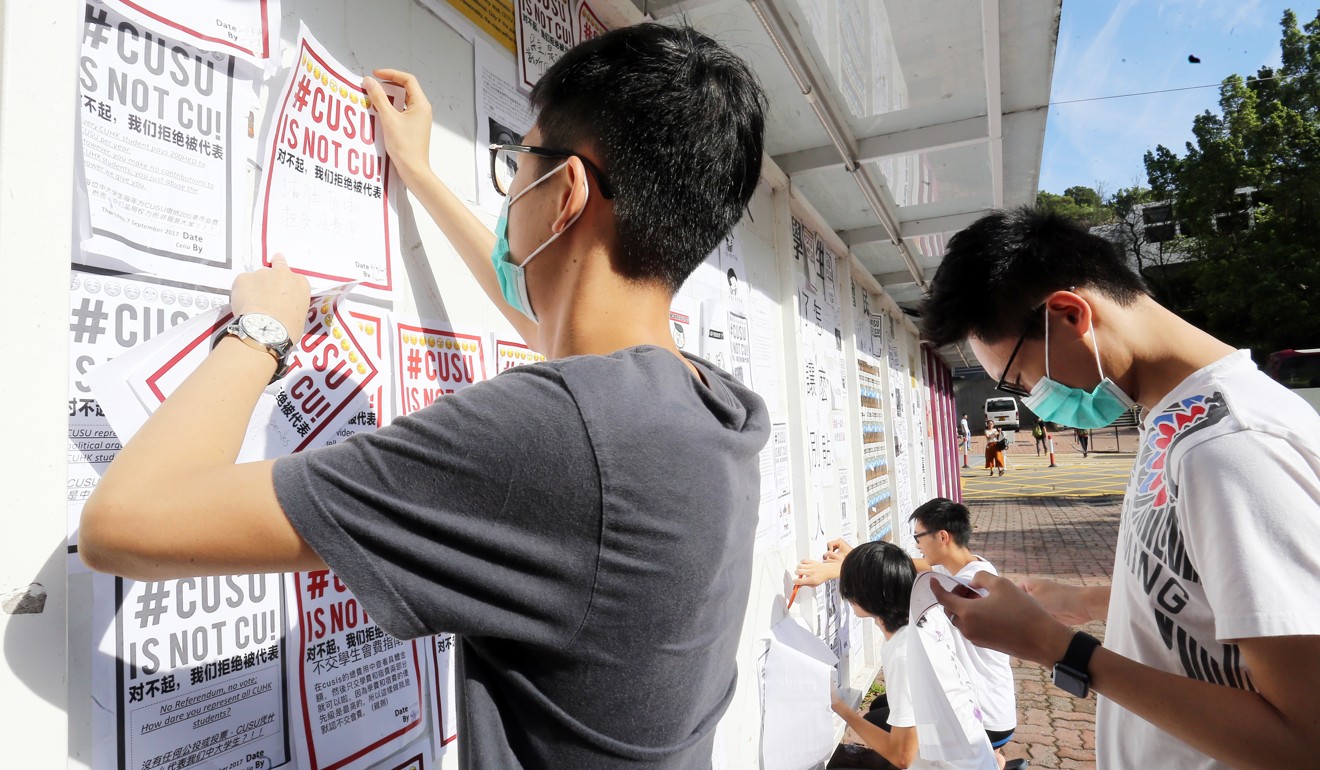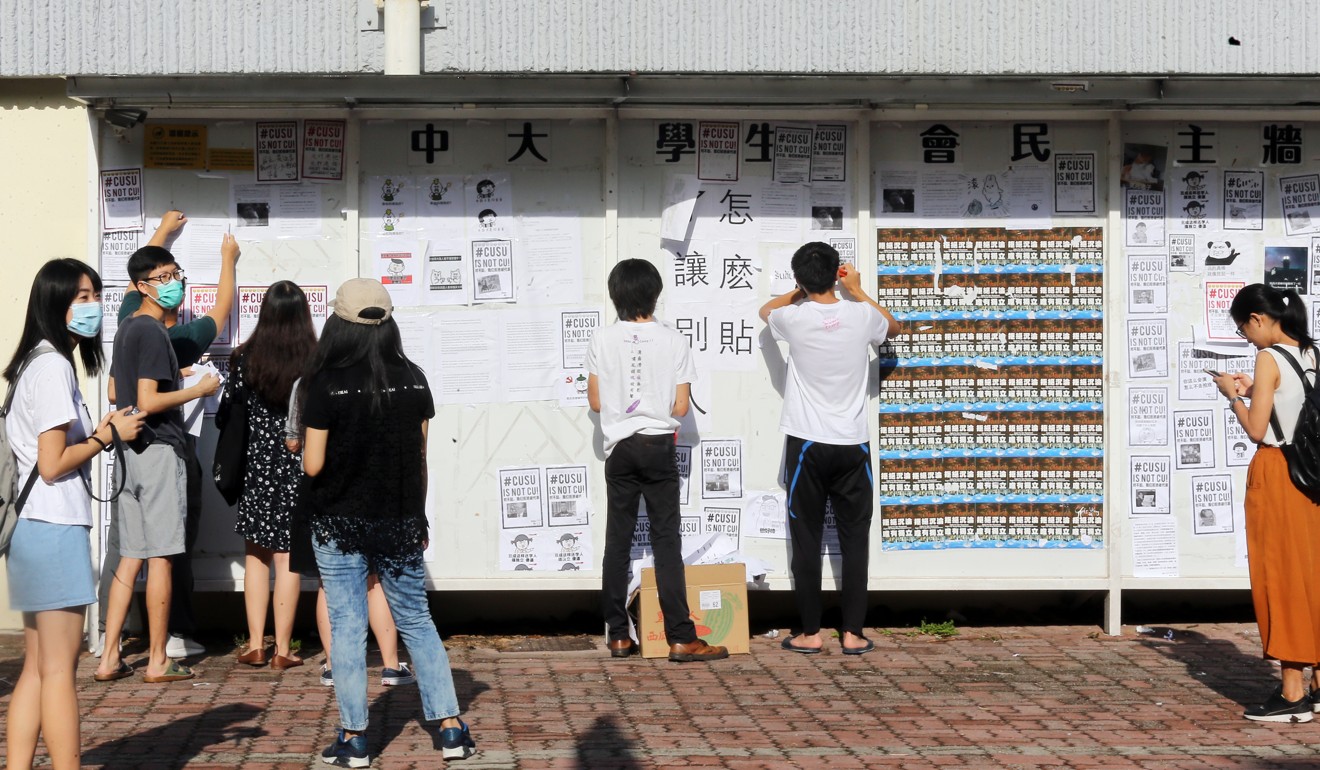
Four student unions demand dialogue with Chinese University officials in six-hour stand-off over Hong Kong independence posters
Drama plays out as city’s leader Carrie Lam warns independence advocates they have ‘overstepped the bottom line’

The row over the display on campuses of banners advocating independence for Hong Kong intensified on Friday with four student unions demanding a dialogue with Chinese University officials in a six-hour stand-off.
The drama played out as Chief Executive Carrie Lam Cheng Yuet-ngor warned independence advocates had “overstepped the bottom line”.
Freedom of speech was not without limits, Lam stressed, and academic freedom and autonomy were no excuses for spreading fallacies.
“Hong Kong independence runs against ‘one country, two systems’ and the Basic Law, as well as the overall and long-term interest of society,” the city’s leader said.
“I condemn the continued appearance of such remarks on university campuses, which is in violation of our country’s sovereignty, territorial integrity and development interests.”

Her condemnation was sparked by posters reading, “Fight for our homeland, fight for Hong Kong independence”, and a large black banner with a similar slogan, which first appeared on Monday on Chinese University’s “democracy wall”, the message boards managed by the student union.
The controversy escalated into open confrontation between local and mainland students on Thursday evening with the two groups competing for space to paste posters expressing opposing viewpoints on the idea of Hong Kong breaking away from China.
The union later took down the controversial posters from three of the four boards and warned it would remove such materials if they were displayed without a signature by Friday morning.
As if on cue to meet the deadline, a mysterious “Chris Wong” signature then appeared on the posters – the name is used as a standard by students for English essay exams that require the writer to remain anonymous.

At around 2.30pm, about 30 members of the student unions of Chinese University, the University of Hong Kong, Baptist University and Shue Yan University stormed Chinese University’s student affairs office and cornered officials for a dialogue.
They demanded protection for “freedom of speech, regardless of differing political stances” and a promise that banners or posters would not be taken down.
The stand-off ended at around 8.30pm when university vice-president Dennis Ng Kee-pui promised to retract a letter issued on Tuesday demanding the removal of such messages. He agreed not to take them down without talking to the students.
Similar pro-independence posters surfaced at five other universities on Tuesday and they remained on display at Education University and Shue Yan University on Friday.

A Shue Yan spokeswoman said the university was against independence advocacy, and while it upheld freedom of speech on campus, students should abide by the law.
It also emerged on Friday that former Chinese University student union president Ernie Chow Shue-fung was filmed using the word “Chee-na” – the derogatory pronunciation of “China” used during Japanese wartime occupation – during a quarrel with mainland students on Thursday night.
Chinese University said it severely condemned the use of such “insulting” words and was investigating the incident.
Chow said he used the term after the mainland students ignored the union’s rule against posting messages to cover up existing ones, and accused them of swearing at others.